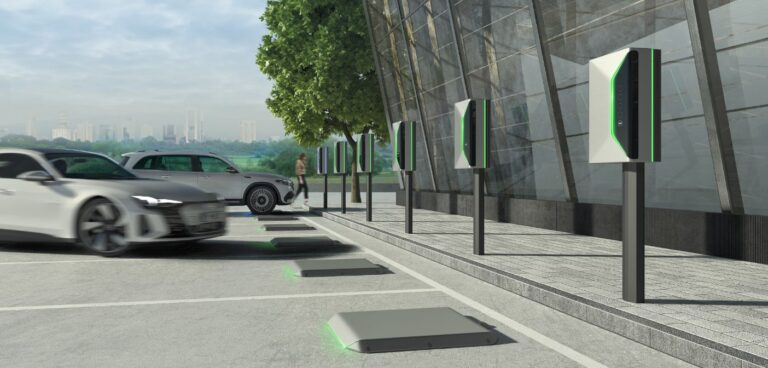Siemens has announced that it has invested US$25m (£20.9m) and acquired a minority stake in US-based wireless charging technology company WiTricity.
Siemens and WiTricity will work together to drive innovation in the emerging market for wireless EV charging. which is expected to reach US$2bn (£1.67bn) by 2028 in Europe and North America, according to Siemens.
Specifically, the two companies seek to bridge the gaps in the global standardisation of wireless charging for electric passenger and light-duty commercial vehicles, to enable interoperability between vehicles and infrastructure, as well as support market penetration.
In addition, both parties will collaborate to advance the technical development of wireless charging systems. Siemens will also become a technology license partner for future wireless EV charging products.
Read more: First US wireless charging road to be built in Detroit
“Combining Siemens’ global footprint and EV charging portfolio with WiTricity’s innovative technology is the first step toward elevating our offering in the wireless charging space,” said Markus Mildner, CEO of Siemens eMobility.
“This will speed up deployment of wireless charging technology, support standardisation, and advance public charging infrastructure with interoperable solutions for drivers’ convenience.”
CiTTi analysis: how does wireless charging work?
A charging pad mounted on or in the ground exchanges power with a receiving coil attached on the underside of the EV. There are no moving parts or physical connectors. Instead, a magnetic field transfers energy between the charging pad and the vehicle coil when the vehicle is over the charging pad. The system uses resonant induction between the charger and receiver in order to provide high efficiency at a variety of ground clearances, from low-slung sports cars to SUVs.
The ultimate goal of the collaboration is to accelerate the maturing of wireless charging technologies together with OEMs and infrastructure partners to simultaneously ensure their cost-effective availability worldwide.
A recent survey of more than 1,000 current and future EV owners interested in purchasing an EV in the next two years indicated that wireless charging was one of the highest-rated add-ons and a more preferred option to other amenities, including park-assist, performance, or premium audio packages.
Read more: Gothenburg trials wireless charging for electric taxis
“Wireless charging enables a driver to just park and walk away, returning to a charged vehicle,” said Alex Gruzen, CEO of WiTricity. “Wireless charging makes EVs more appealing for individual owners and more cost-effective for commercial operators.
“We are excited to partner with a leader like Siemens to help drive this new world of compelling solutions.”





